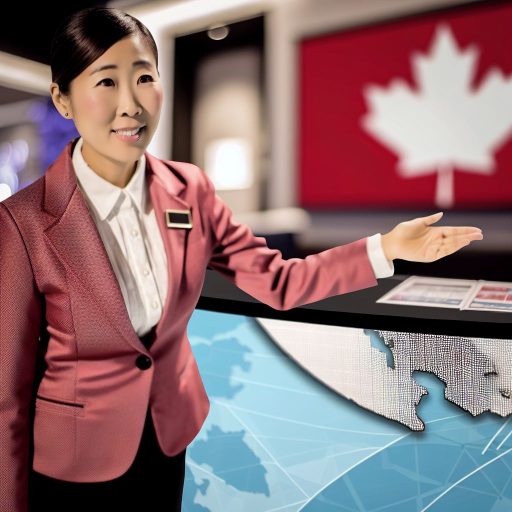Overview of the Role of Front Desk Agents in Modern Organizations
Front desk agents serve as the first point of contact for visitors.
They handle inquiries, provide information, and assist with check-ins.
In a fast-paced environment, they manage multiple tasks simultaneously.
Excellent communication skills are essential for building rapport with guests.
Moreover, front desk agents represent the organization’s image and values.
Key Responsibilities
The responsibilities of front desk agents are diverse and critical.
These include greeting and welcoming guests with a friendly demeanor.
They facilitate the check-in and check-out processes efficiently.
Additionally, they manage reservations and address guest concerns promptly.
Another key duty involves coordinating with other departments for seamless service.
Importance of Technology
Technology plays a crucial role in enhancing front desk operations.
Agents utilize software for reservations, check-in, and customer management.
Advanced systems can streamline workflows and reduce errors.
Furthermore, mobile applications allow agents to assist guests from anywhere.
Skills for Success
To excel, front desk agents must possess various skills and traits.
Strong interpersonal skills foster positive guest interactions.
Additionally, problem-solving abilities are vital for resolving issues.
Lastly, adaptability enables them to handle unexpected situations gracefully.
Essential Computer Software Tools for Managing Bookings and Reservations
Comprehensive Booking Systems
Comprehensive booking systems streamline the entire reservation process.
These tools enable front desk agents to manage bookings efficiently.
They allow users to check availability in real-time.
Additionally, they simplify cancellations and modifications.
Popular booking systems include Cloudbeds and Guestline.
Property Management Systems
Property management systems (PMS) integrate all aspects of hotel operations.
They include features for managing guest check-ins and check-outs.
Unlock Your Career Potential
Visualize a clear path to success with our tailored Career Consulting service. Personalized insights in just 1-3 days.
Get StartedMoreover, they facilitate billing and invoicing processes.
Systems like Opera and Maestro are widely used in the industry.
Channel Management Tools
Channel management tools optimize distribution across multiple platforms.
They help front desk agents oversee various online travel agencies.
These tools ensure consistent pricing and availability across channels.
Examples include SiteMinder and HiRevenue.
Customer Relationship Management Software
CRM software enhances guest engagement and loyalty.
It organizes guest data for personalized service offerings.
Additionally, it tracks interactions for continued relationship-building.
Notable CRM platforms include Salesforce and Hotelogix.
Point of Sale Systems
Point of Sale (POS) systems streamline transactions at the front desk.
They support various payment methods for guest convenience.
Moreover, they track inventory in real-time and integrate with PMS.
Renowned POS systems include Toast and Lightspeed.
Reporting and Analytics Tools
Reporting and analytics tools provide valuable insights into operations.
These tools analyze booking trends and revenue performance.
Additionally, they help identify areas for improvement.
Examples of these tools include Revinate and STR.
Online Review Management Software
Online review management software aids in monitoring guest feedback.
These tools notify agents of new reviews in real-time.
They enable front desk agents to respond promptly and effectively.
Popular options include TrustYou and ReviewPro.
Communication Tools for Effective Client Interaction and Support
Email Communication
Email remains a vital tool for front desk agents.
It allows for clear and documented interactions.
Agents can send confirmations and receive inquiries via email.
Furthermore, templates help streamline responses for common questions.
Live Chat Support
Live chat provides instant assistance to clients.
This tool greatly enhances user experience on websites.
Agents can handle multiple inquiries simultaneously.
Moreover, pre-set responses can speed up communication.
Phone Communication
Phone calls enable personal interaction with clients.
They offer a direct way to address urgent issues.
Agents can convey empathy and build rapport over the phone.
Additionally, using a call management system can improve efficiency.
Social Media Platforms
Social media has become increasingly important for support.
It allows clients to reach out through their preferred channels.
Agents can monitor reviews and feedback effectively.
This interaction helps in building a community and trust.
Collaboration Tools
Collaboration tools enhance teamwork among agents.
They facilitate the sharing of important client information.
Platforms like Slack or Microsoft Teams improve internal communication.
As a result, response times to client inquiries decrease.
Customer Relationship Management (CRM) Systems
CRM systems help track client interactions and history.
They enable agents to personalize their approach to client needs.
Valuable insights can be gathered from customer data.
This data-driven approach enhances overall service quality.
Explore Further: How Technology Is Changing the Role of Front Desk Agents
Integrated Property Management Systems: Features and Benefits
Streamlined Operations
Integrated property management systems streamline daily operations for front desk agents.
These systems combine various functions into one cohesive platform.
Consequently, agents save time and reduce the risk of errors.
User-Friendly Interfaces
The best property management systems feature intuitive interfaces.
This design allows front desk agents to navigate easily.
As a result, training new staff becomes quicker and more efficient.
Real-Time Data Access
Real-time data access is crucial for effective decision-making.
Agents can view room availability and guest information instantly.
This capability improves guest service and enhances satisfaction.
Enhanced Guest Experience
Integrated systems improve the overall guest experience significantly.
Agents can handle requests promptly and accurately.
This responsiveness builds strong relationships with guests.
Revenue Management Tools
Advanced revenue management tools help maximize profitability.
These features analyze market trends and pricing strategies.
In this way, hotels can optimize their rates effectively.
Seamless Integration with Third-Party Applications
Many property management systems allow seamless integration with third-party applications.
This compatibility enables the addition of features like online bookings.
Moreover, it enhances marketing efforts through various channels.
Improved Reporting Capabilities
Integrated systems offer robust reporting capabilities for management.
These reports provide insights into occupancy rates and financial performance.
As a result, managers can make informed strategic decisions.
Delve into the Subject: Marketing Tips For Spa Managers In Canada
Customer Relationship Management Software for Tracking Interactions
Importance of CRM in Front Desk Operations
CRM software streamlines customer interactions effectively.
It provides essential tools for managing relationships.
This technology centralizes data, making information accessible.
Moreover, it helps agents respond quickly to customer inquiries.
Key Features of Effective CRM Software
Robust CRM systems include tracking of customer interactions.
They offer reporting features for performance analysis.
Additionally, they integrate with email for seamless communication.
Real-time notifications keep agents informed about important updates.
Choosing the Right CRM for Your Business
Selecting a CRM requires assessing specific business needs.
Consider user-friendly interfaces to ensure quick adoption.
Look for customization options to tailor the software.
Furthermore, evaluate customer support offered by vendors.
Benefits of Using CRM for Front Desk Agents
Using CRM enhances customer satisfaction significantly.
It provides personalized experiences based on customer history.
Additionally, it boosts operational efficiency and productivity.
Furthermore, it helps identify trends in customer behavior.
Delve into the Subject: Understanding Wine Labels Like a Professional Sommelier
Digital Payment Processing Solutions for Seamless Transactions
Importance of Digital Payment Solutions
Digital payment solutions enhance the guest experience at hotels and businesses.
They simplify transactions, making them quicker and more efficient.
Furthermore, they provide security for both the guest and the provider.
These solutions can also facilitate international payments effortlessly.
Types of Digital Payment Processing Solutions
Modern front desk agents can leverage various types of digital payment options.
For instance, mobile wallets are becoming increasingly popular among consumers.
Card readers offer a reliable method for processing credit and debit cards.
Additionally, online payment gateways enable transactions even before guests arrive.
Benefits of Utilizing Digital Payments
Utilizing digital payments can result in faster transaction times.
This speed reduces wait times for guests checking in and out.
Moreover, it minimizes the chances of human error during transactions.
Besides, digital payments often come with detailed transaction records.
Implementing Digital Payment Solutions
Choosing the right provider is crucial for a successful implementation.
Investigate various payment processing companies to find the best fit.
Ensure integration with existing systems to avoid complications.
Training staff on using these systems is vital for smooth operations.
Ensuring Security in Transactions
Security is a paramount concern when dealing with digital payments.
Employ encryption technologies to protect sensitive information.
Regularly update software and security protocols to minimize risks.
Consider compliance with industry standards, such as PCI-DSS.
Discover More: Common Duties and Responsibilities of a Concierge

Security Tools for Safeguarding Customer Data and Privacy
Importance of Data Security
Data security is crucial for front desk agents.
They handle sensitive customer information daily.
Protecting this data ensures trust and loyalty.
Moreover, it helps comply with legal regulations.
Encryption Technologies
Encryption tools are essential for data protection.
They convert information into secure codes.
This prevents unauthorized access during transmission.
For instance, tools like SSL certificates and VPNs are widely used.
These tools safeguard both personal and payment data.
Data Loss Prevention Software
Data loss prevention (DLP) software is a vital security measure.
DLP solutions monitor and protect sensitive data across networks.
They identify potential threats and prevent unauthorized sharing.
Examples include Symantec DLP and McAfee Total Protection.
Utilizing DLP software minimizes data breach risks.
Access Control Management
Access control tools are necessary for limiting data access.
They ensure only authorized personnel can view sensitive information.
Role-based access control (RBAC) is one effective approach.
Incorporating tools like Okta can streamline this process.
This not only secures data but also helps maintain accountability.
Regular Security Audits
Conducting regular security audits is essential for identifying vulnerabilities.
These audits help organizations assess their current security measures.
Tools like Nessus can help perform thorough assessments.
Regular audits lead to timely updates and improvements.
Ultimately, they strengthen data protection strategies.
Employee Training and Awareness
Training employees on security best practices is vital.
They should understand the importance of data protection.
Regular workshops and training sessions can improve awareness.
Also, teaching staff to recognize phishing attempts is crucial.
An informed team is a key asset in data security.
Mobile Applications to Enhance Service Delivery and Customer Engagement
Importance of Mobile Applications
Mobile applications play a crucial role in modern front desk operations.
They provide quick access to information and streamline workflows.
Additionally, they improve communication between staff and guests.
Features of Effective Mobile Applications
A user-friendly interface is essential for front desk agents.
These applications should offer real-time updates on guest requests.
Furthermore, seamless integration with existing systems is vital.
Customer Engagement Tools
Mobile apps can enhance customer engagement significantly.
Personalized communication through push notifications keeps guests informed.
Moreover, reviewing previous interactions helps tailor future services.
Case Study: Hilo Hotel’s Application
Hilo Hotel has successfully implemented a mobile application.
This app allows guests to check in and manage their bookings effortlessly.
As a result, customer satisfaction has seen a notable increase.
Benefits of Mobile Applications
Time-saving features help front desk agents manage tasks efficiently.
Increased guest satisfaction leads to higher retention rates.
Consequently, businesses experience improved overall performance.
Challenges to Consider
Despite the advantages, challenges exist in mobile app implementation.
Staff training is vital for successful adoption of the technology.
Additionally, ongoing maintenance and updates are necessary to keep it relevant.
Training and Development Resources for Skill Enhancement and Tool Usage
Importance of Ongoing Training
Ongoing training is essential for front desk agents.
It helps them stay updated with industry trends.
Additionally, it boosts their confidence in using tools.
Available Training Programs
Numerous training programs cater to front desk agents.
- Online courses provide flexible learning options.
- Workshops offer hands-on experience with tools.
- Mentorship programs pair new agents with experienced professionals.
Utilizing Technology for Training
Technology enhances training effectiveness significantly.
eLearning platforms allow agents to learn at their own pace.
Virtual simulations mimic real-life scenarios for practice.
Furthermore, mobile apps provide resources on-the-go.
Skill Enhancement through Interactive Learning
Interactive learning fosters engagement and retention.
Role-playing exercises improve communication skills.
Team-building activities promote collaboration among agents.
Resources for Tool Usage
Understanding tools is crucial for front desk efficiency.
- User manuals provide step-by-step guidance.
- Video tutorials offer visual demonstrations.
- Webinars cover advanced tool functionalities.
Feedback and Continuous Improvement
Regular feedback helps identify areas for improvement.
Encouraging peer reviews fosters a culture of growth.
Additionally, performance evaluations guide targeted training.
Consequently, agents become more proficient in their roles.




